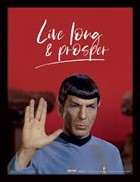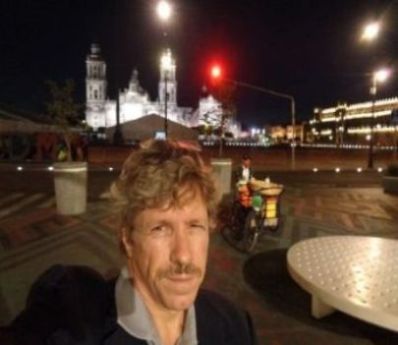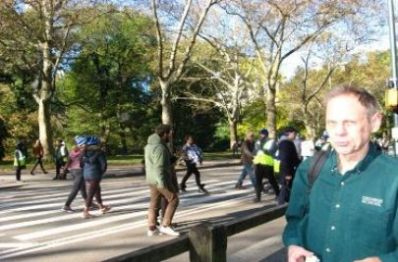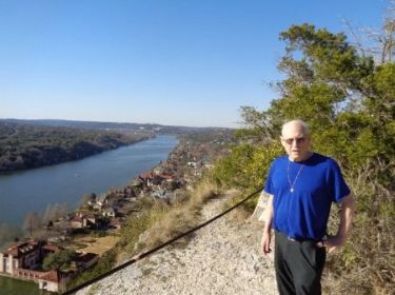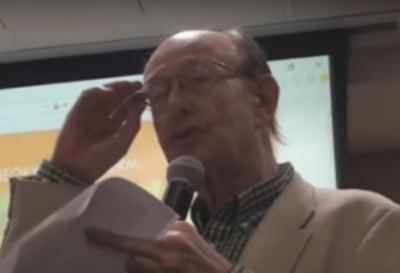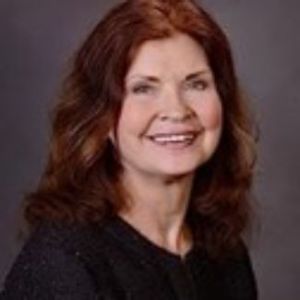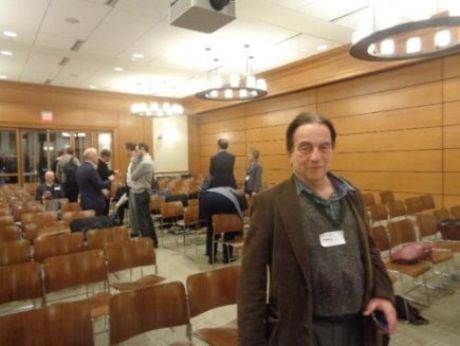POLITICAL ECONOMY
FOR EVERYONE
To the extent that "money" is a
public medium, it should have unambiguous clarity and consistency in its definitions.
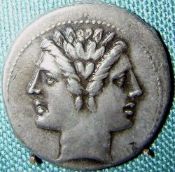
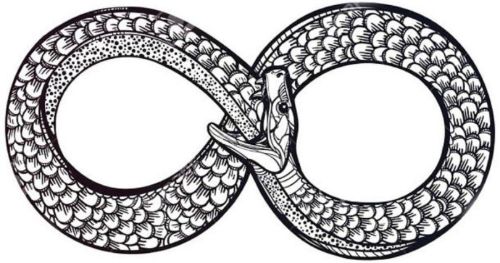
WELCOME -
to the 5 W’s & H
WHAT: This
site’s function is to serve as a public de-mystification (in both academic and
common language) of:
a] basic monetary-economic terms,**
b] their origin and how they became ‘mystified’
(mostly over the course of the 20th century),
c] while also introducing (a global-historical
consistency to) core political-economic concepts that were
and/or are deemed necessary for the common good.
** A sub-domain and/or complementary “wiki”-style website, moneypedia.US , is under construction, like a smaller wheel (that money-currency is) within the larger wheel of political economy. For the time being, this singular site, http://politicaleconomy.help serves as the work-in-progress.
WHY:
‘Everyone’ these days (2020’s) seems to have their own long list of
observations on how the ongoing crises (or ‘long crisis’) of the 21st century is
challenging-- if not upending-- many 20th century institutions. Not to pick or
play favorites here, it seems that what (at least the lion’s share of) the institutional
crises have in common pertains to the (already much remarked upon) great
millennial-era transition from the ‘2nd Industrial Revolution’
(c.1870’s-1970’s) to the often contrarian ‘3rd Industrial
Revolution’ (from the 1970’s--); and this truly revolutionary transition is of
course also concurrent with mankind having to negotiate a hitherto
unprecedented environmental crisis in the Earth’s biosphere. Crises, of course,
are not all bad, given a long-term orientation (危机). Like it or not, ready or not, salient institutional “change” is
now upon us, as a species (negotiating with its physical-trophic environment); Monetary Economics is (increasingly) the one mystery factor that
circulates, like blood, between within and through nearly all of these institutions--
making them, it is (habitually) presumed, more effective and efficient. But ‘effective & efficient’ for whom, and at what cost? Monetary and
other political-economic institutions should be growing more comprehensible and
accountable with the monetization phenomenon, not less.
Why wait
another, say, twenty years or so for formal academia to essentially ‘prove what
we already know’ (or what has already long been in existence)? The Crisis (in
political economy) is now, and is not being resolved with (second
millennium-esque) judgement-based ‘reaction-think’ of the past. It is possible
to bring clarity and coherence sooner rather than merely later, in an ethical
and consistent manner.
WHERE: The bird does not stop its flight at
the imaginary/abstract political boundaries that demarcate the political
institutions of man; neither have the sea or wind currents that primarily distribute
the things that mankind needs for basic sustenance and growth. This site’s analysis, although encompassing the world economy, is primarily from the vantage of a
longterm American viewpoint and perspective, bearing in mind the American
people’s traditional, constitutional, and historical charge (concerning open,
accountable, and clearly-articulated public institutions).
WHEN: All of human history has been a
relationship between mankind and the trophic-eco resources of the Earth’s
biosphere/environment. It is not (ethically) possible to ‘start from scratch’.
Today’s institutions have roots that are often very deep, if not culturally
‘sacred’. From a historian’s perspective++,
getting one’s head around the interplay of institutions requires a lot of
digging and a consistent application of ‘5 Ws & H’ type questioning, in addition to
open-mindedness to the (common sense) demands of changing evidence.
++- http://www.nationalityinworldhistory.net
HOW: A world of increasing institutional
complexity is a world with more puzzle pieces. This does not
have to be overwhelming; it can also be edifying, given the discipline of
intellectual consistency and coherent organization. One doesn’t have to be
‘Shakespeare’ to take liberties with the (built for liberality) English
language**
and information age capabilities of word processing, formatting, and c-o-l-o-r. Tools are
made to help us.
**- www.nationalityinworldhistory.net/LanguageandCulture.html
WHO: Your '3rd Estate’ EDITORS and primary CONTRIBUTORS
Editors and Contributors
Michael White (in addition to
being internationally-vetted: https://www.peoples.ru/state/teacher/?page=10) has
taught a
number of subject levels (from undergraduate business studies and English to
history and cultural communication), living and working on 4 continents and visiting approximately 100 countries. A thirteenth generation American and 3rd
generation educator, White grew up in a university ‘History family’ and has held life-long
determinative research interests
(pertaining mostly to truths-myths and/or different cultures). Sample writings, sometimes collaborative, may be viewed at: http://www.nationalityinworldhistory.net , and www.nationalityinworldhistory.net/LanguageandCulture.html
. His monetary-focus
within empirical political economy began with the Financial Crisis of 2008-09,
while a doctoral candidate in World History at Wuhan University. Subsequent
participation at the 2014-2019 American Monetary Institute conferences in
Chicago followed suit.**
White still travels widely and resides in (the
multiethnicity of) Austin, Texas.
**- White
initiated collaboration with (fellow AMI participants) Kenaga from the winter
of 2015-16, and Smith and Marks in 2018, in addition to briefly meeting Cook
and Perry (being invited to their weekly discussion group) in 2019-20.
Allen Smith has taught “Money and Banking” at the Henry George
School in New York City
for a decade, and has long been an independent-minded
reader in political economy classics. A sometimes monetary conference
participant, his formal background is in computer programming languages.
Smith resides in Manhattan, New York City.
Dennis Kenaga is a retired computer programmer with
the Michigan Department of Transportation, linguo-biblical scholar, and a member of the Grace Orthodox
Presbyterian Church. From 2014-2019 he attended
the three-day American Monetary Institute conferences and is active at the local, state, national, and international
levels of political economy and politics.
Randy Cook was elected President of the National
Organization for Raw Materials (NORM) in 1997. NORM was formed in 1936 to
analyze the economic heritage and record of the USA. Results from that
continuing research demonstrate the viability of a “Par-economy” approach as a sound strategy
for national prosperity-security for current and future generations.
Cook has authored numerous issues of NORM’s Economic Report of the Producers,
concerning primary sector-based economic practices & policies, the “American System” of economics, and
humanely practical solutions for local, national, and world conditions++.
Cook resides on his blueberry farm outside of Charlotte,
Michigan.
++- https://www.youtube.com/watch?v=rKJfqW7S4yI
++- https://www.youtube.com/watch?v=rKJfqW7S4yI
Geraldine Perry is an award-winning author
from Orland Park, Illinois, whose environmental writing is academic, yet
approachable. Her books (https://www.geraldineperry.com ; https://thetwofacesofmoney.com ) and articles have tended to focus on longterm
solutions for economic, health, and environmental issues. She is also active
with local farmers who supply her locally engaged food community with
some of the best nutrient-dense food on the planet.
Perry resides in the southwest Chicago suburbs.
Physicist and electronics consultant, statistician, and export-import entrepreneur Howard Marks has worked in the non-profit sector for senior citizens, children and grant-writing. He is a founding member for the Alliance for
Just Money (2017) and an American Monetary Institute associate since 2007.
Marks resides in greater Chicagoland.
frequent CONTRIBUTORS to
this work-in-progress include:
from over the past-century or so
(helpful
material has been sourced from):
Steve Keen,
Catherine Austin Fitts, Michael Hudson, Joseph Huber, Perry Mehrling, Edgar
Wortmann, Michael Kumhof, Richard Werner; Carroll Quigley, Herman Daly, Thorstein Veblen & Frederick Soddy (the great critics), and Simon Kuznets & Benjamin Graham (the great synthesizers).***
***
[1]
Although there are, of course, too many contributors to mention here (in
addition to the comprehensive Sources list),
Editors would also like to acknowledge the contributions and initiative of
Stephen Zarlenga (and his successors Bob Poteat, Jamie Walton, and Steven
Walsh) in hosting the annual AMI conferences for the general public, as well as
Christine Desan and Morgan Ricks’ hosting of the Just Money conferences at the
Harvard Law School in 2018 and 2023. James McAndrews and Lev Menand have also
provided key intell on contemporary regulation of money & currency, while
Perry Mehrling, Robert McCauley, and Joseph Wang have been revealing the (past
half-century’s) whale-in-the-living room of “eurodollars”. The puzzle simply
does not work without these pieces.
from further back (mostly chronological
order):
Aristotle (middle
class), 重农主义 (physiocracy), Thomas Aquinas (moral pricing), 'Spinoza-De Bono' (‘modern’ 'design' think)**** Montesquieu (empirical social
science), 'Smith-Bentham' (imperial usury), Thomas Jefferson (Americana), Alexander Del Mar (the great critic), and Henry George (the great
simplifier).
**** - https://aeon.co/essays/at-a-time-of-zealotry-spinoza-matters-more-than-ever
- https://www.debonogroup.com/edward-de-bono
(1933-2021; a.k.a. ‘design-thinking’)
In
summary...
“The people is a beast of
muddy brain
That knows not its own
force and therefore stands
Loaded with wood and
stone; the powerless hands
Of a mere child guide it
with bit and rein.
One kick would be enough
to break the chain….”
- Tomasso Campanella, “The People”, early 17th
century
4 Centuries
Later, in the early 21st century…
Most people’s
lives are dominated by money &
monetary institutions, but they do not even know what money, currency, and
monetary institutions are-- a very
dangerous situation for any republic-- yet alone a Republic with democratic pretensions (in our Information Age-to-Knowledge Age transitional era).
REFERENCES (suggested shortlist [chronological]):
- https://archive.org/details/in.ernet.dli.2015.84331/page/n7/mode/2up?q=world+commodities [Graham, 1944]
·
https://www.economy101.net/Contents.html [Lundgren, 1994]
·
https://www.ineteconomics.org/research/experts/pmehrling [(contemporary)
“Money
and Banking” (Mehrling, 2015-23)] ;
https://www.youtube.com/watch?v=sR1pimFztPk [Mehrling
endorsed without
qualification by Bank for
International Settlement]
We welcome serious
reader Comment (public) & Queries (private):
private Feedback and public Comment
